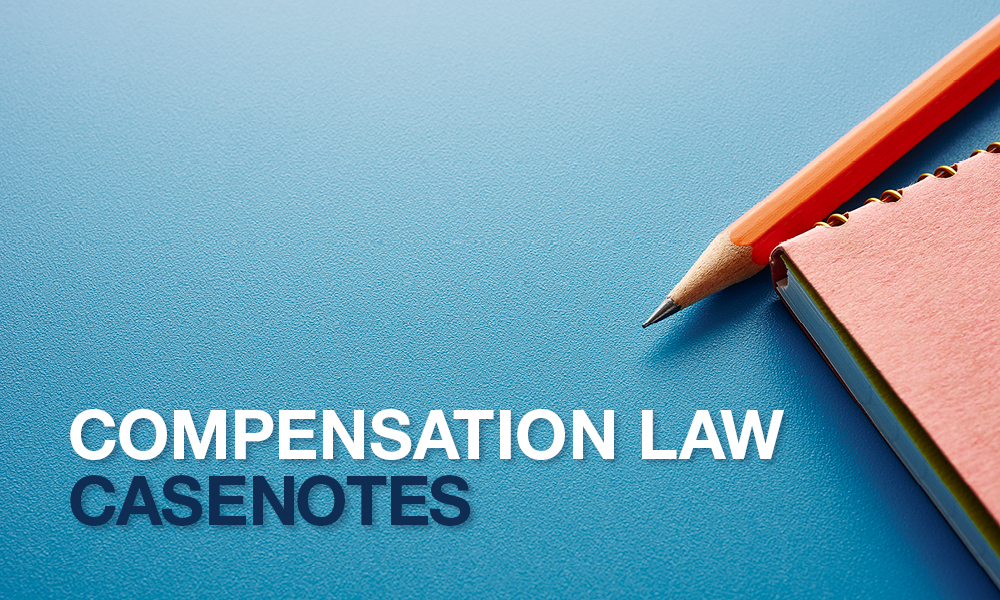…whether defendant had knowledge of aggressive patrons – whether failure to evict patrons caused harm to plaintiff – contributory negligence – damages – viability of business – valuation of economic prospects of an influencer
– Elkaim AJ, delivered 9 March 2023
On 22 December 2017, Clinton Chadwick (the plaintiff) visited The Bucket List Bond (referred to as ‘the venue’), an establishment owned and operated by Bondi Beach Food Pty Ltd (the first defendant).
Crossguard Group Pty Ltd (the second defendant) provided security services at the venue.
At the venue, the plaintiff was viciously assaulted by Mr Martin (another patron who was severely intoxicated). The plaintiff’s injuries were widespread; however, the plaintiff was mostly troubled by psychiatric and psychological impairments, stiffness in his neck from time to time, and some scarring.
Mr Martin pleaded guilty to the assault and was not a defendant in the proceeding, although liability would have been easily established.
The plaintiff alleged that both defendants had breached their duty of care by failing to take precautions to ensure Mr Martin was controlled or evicted from the venue before the assault took place and the defendants should have intervened in the altercation to prevent the injuries from being sustained.
The two defendants denied liability, filed cross claims against each other and alleged the plaintiff had contributed to his injuries by initiating physical contact against Mr Martin, following a series of provocative remarks from Mr Martin.
There was also an issue about quantum, as the defendants alleged the plaintiff was not incapacitated from working as he had continued to earn an income after the incident. Further, there was contention around the valuation of economic prospects for the plaintiff’s work as a social media influencer and founder of a fitness activewear brand.
Decision
- The plaintiff was successful in the negligence claim against the defendants, with a 20% reduction for contributory negligence.
- The plaintiff was awarded $200,706.40 in damages.
- The defendants were ordered to pay the plaintiff’s costs.
- On the cross-claims, verdict for each cross claimant for contribution or indemnity to the extent of 50% of the damages and costs payable to the plaintiff.
Ratio
Liability
The common law duty of care owed to a patron in a public bar is the same as that of an occupier to a lawful entrant. However, Adeels Palace Pty Ltd v Moubarak established that there is an added element for a licensed venue whereby the venue must control ‘violent, quarrelsome or disorderly conduct on licensed premises’ by taking reasonable steps to control the sale of liquor and minimising harm.
The judge accepted that the second defendant, as a labour hire company and doing no more than supplying security personnel requested by the venue, had not been delegated the duty by the first defendant. Rather, both defendants owed a duty of care towards patrons.
It was uncontroversial that intoxicated people can be dangerous and can cause harm. Additionally, it was foreseeable that an intoxicated person may attack another person and the risk of harm would not be insignificant.
A precaution the first defendant had put in place to prevent harm to patrons was the employment of security guards to monitor the sale of alcohol and maintain the peacefulness of the venue.
The central question for the judge to consider was whether the defendants were on notice that Mr Martin and his group of friends were a danger to other patrons in the venue and should have been controlled or evicted. There was little doubt that Mr Martin’s group were noticed by the venue staff and the security guards.
In an admission, one staff member had acknowledged that Mr Martin had caused trouble from the moment he and his colleagues entered the venue and the staff member had “simply failed to deal with them appropriately”.
Further, the owner of the venue had informed the security guards to ‘keep an eye’ on Mr Martin’s group. The judge concluded that both defendants would, or ought to, have seen that Mr Martin and his group were generally misbehaving. No member of the venue or security team acted appropriately to monitor, assess, or take any action in respect of the group.
As a result, the judge was satisfied that the venue was operating in a manner which maximised the sale of alcohol regardless of the impact on security. Additionally, the level of security staffing required for the venue was inadequate and there was not one licensed security guard in a position to physically intervene in the developing friction between the plaintiff and Mr Martin.
Consequently, the judge found both defendants equally liable and was satisfied that the plaintiff’s injuries were caused by the defendants’ breach of duty.
Contributory negligence
After reviewing the CCTV footage, the judge concluded that although the plaintiff initiated the physical contact with Mr Martin, this did not infer that he was the instigator of the incident. Instead, the judge was satisfied that the plaintiff had experienced provocative comments from Mr Martin and his group of friends and reacted accordingly.
The judge assessed there was 20% contributory negligence from the plaintiff by failing to ignore the taunts aimed at him by Mr Martin’s group. However, the judge placed more weight on both defendants’ failure to evict or control the abusive, aggressive and obviously intoxicated group, which enabled the altercation to commence.
Quantum
Both defendants submitted that the plaintiff’s injuries had been exaggerated or embellished, based off the social and recreational activities the plaintiff had engaged in following the accident. Some of these activities included international holidays, attending a nightclub, commencing his posts on OnlyFans, and multiple fitness expos.
The judge did not consider the plaintiff to be overtly dishonest but rather “somewhat deluded by his own image” and unreliable. The judge believed the plaintiff had not consciously exaggerated his symptoms, but the plaintiff’s perception of his brand and image had been damaged, even if not actually so, to the extent that there had been a psychological impact on his confidence and self-worth. The judge was satisfied that the plaintiff had a post-traumatic stress disorder that was gradually resolving.
A central aspect of the plaintiff’s case was the economic loss suffered in his fitness activewear business.
The defendants mounted a significant attack on the plaintiff’s credibility, outlining that the plaintiff’s suggestion that his business collapsed as a result of the assault, while perhaps having a degree of connection, was in reality subject to many other factors. Some reasons included, the business was running at a loss, the plaintiff was in debt, there was limited stock, and the business had no chance of success. The judge concluded that the plaintiff’s business was not viable at the time of the injury.
Additionally, during the two-year period following the incident, the plaintiff had earned $70,000 by posting images of himself on OnlyFans. Although 75% of the images had been taken before the assault, the plaintiff had continued to post these images and derive a financial benefit. As a result, the judge was not satisfied that the plaintiff was incapable of producing an income following the incident.
The judge did not consider the economic power of influencers and social media accounts, as the plaintiff’s business was not sustainable. Instead, the jJudge awarded past economic loss based off the plaintiff’s previous employment role as a fitter and turner at Lend Lease, a profession which he could possibly return to, and reduced this calculation by 50% to allow for the fluctuations when the plaintiff was unable to work. The future economic loss was limited as the psychological symptoms were close to resolution.
Quantum was awarded as follows:
| Non-economic loss | $46,000 |
| Past and future out of pocket expenses | $7000 |
| Past economic loss | $154,360 |
| Past lost superannuation benefits | $18,523 |
| Future economic loss | $25,000 |
| Total | $250,883 |
This compensation law casenote has been reviewed and approved by Travis Schultz, Managing Partner of Travis Schultz & Partners, and appears courtesy of Travis Schultz & Partners (TSP), where the author, Shelby Bennett, is a law student and an Administration Assistant of TSP. As part of the firm’s commitment to providing ongoing legal education, TSP practitioners review relevant judgments and prepare case summaries for the legal profession. A free searchable catalogue of compensation law casenotes is available at schultzlaw.com.au/case-summaries (registration required). The full version of the judgments can be found at austlii.edu.au












Share this article